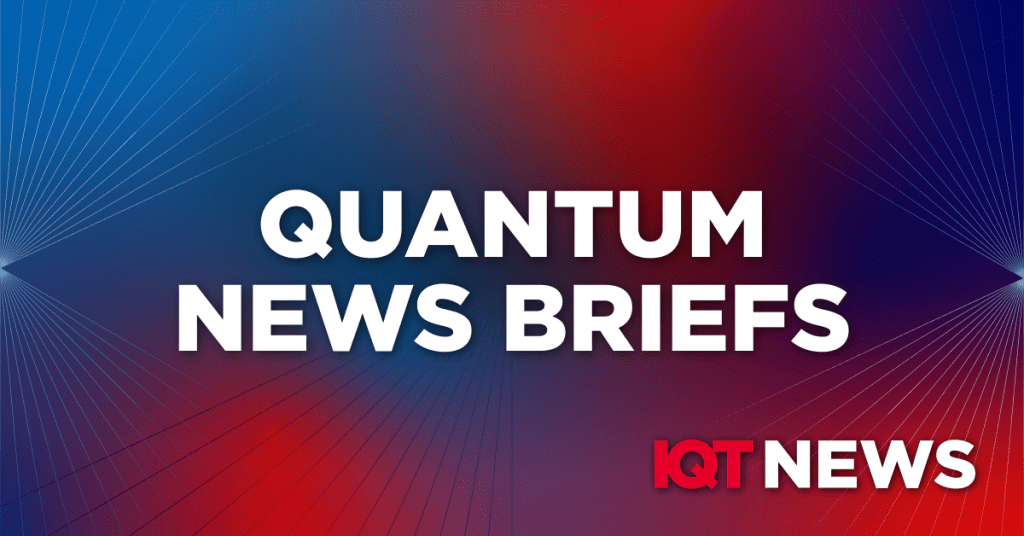Jülich Leads QSolid Quantum Prototype Toward Hybrid HPC Integration for Industry & Research
After two and a half years of development, the 160-member consortium, led by project coordinator Dr. Frank Wilhelm-Mauch, has reached a key milestone. “We have developed a compact but powerful system that is now ready to enter the next phase of development,” Professor Wilhelm-Mauch stated. Over the coming years, the system will be further enhanced and integrated into Jülich’s supercomputing infrastructure to expand its performance from the current 10 to 30 qubits.
QSolid is 90 per cent funded by the Federal Ministry of Education and Research (BMBF). The project, in which 25 institutions from Germany are collaborating, is part of the German strategy to secure technological sovereignty in the field of quantum research. The overarching aim is to strengthen Germany’s industrial competitiveness and to enable new applications in science and industry, for example in areas such as chemistry, materials science and medical technology.
A total of 76.3 million euros is being allocated to the project. The funding has now been fully approved by the BMBF due to the convincing performance data of the 10-qubit prototype.
SKT Quantum Cryptography Chip Receives Verification from National Intelligence Service
KCMVP is a system that verifies the stability and implementation suitability of cryptographic systems used to protect important information of the state and public institutions.
Currently, cryptographic modules installed in information protection systems for the state and public institutions must receive KCMVP certification. The ‘quantum crypto chip’ is a security chip that combines two chips, namely a quantum random number generator chip and a cryptographic communication chip. In particular, it features ultra-light weight and low power consumption while applying powerful security features such as quantum-based encryption key generation technology and physical unclonable function (PUF) technology.
The certification that SKT received this time is the National Intelligence Service KCMVP Security Level 2, which is the highest level of certification granted by the National Intelligence Service to cryptographic modules to date. This is the first time in Korea that a security chip with a quantum random number generator applied has passed the National Intelligence Service’s security verification.
RELATED: SK Telecom a Titaniu Sponsor at IQT’s recent “Quantum + AI Conference”.
SKT predicted that this passage of the National Intelligence Service security verification will serve as an opportunity for the use of ‘quantum cryptography chips’ in various fields that require high security, such as national defense and other public institutions, as well as corporate AI CCTVs, drones, and 5G specialized networks.
Quantum Algorithms Institute Drives Predictive Model Accuracy with Quantum Collaboration
The partnership aims to tackle complex problems in financial forecasting and predictive analytics such as non-stationary data, model overfitting, and generalization. Progress in these aspects make financial machine learning more streamlined by eliminating unnecessary features in financial datasets, improving the speed and accuracy of financial forecasts.
The collaboration has successfully identified key feature analysis issues in machine learning model designs and reformulated them for execution on quantum computers. Test runs on D-Wave’s quantum systems have already demonstrated useful results:
- Optimized Feature Subset Selection: Preliminary tests indicate that quantum annealing can improve the identification of data or feature sets for model performance compared to some classical methods
- Reduction in Computational Time: The approach shows promise in reducing the time taken to evaluate large data sets, though precise metrics are still being established.
This ongoing partnership aims to showcase the potential of quantum computing in real-world financial modeling, leading to breakthroughs in how well financial prediction models work when data patterns change over time.
ATRC’s VentureOne Launches QuantumGate to Secure Data for the Quantum Era
The Advanced Technology Research Council (ATRC) is the overarching advanced technology research body in Abu Dhabi, established to drive research and development for advanced technology.
QuantumGate’s data security products are based on proprietary technology from the Technology Innovation Institute that will allow organizations to protect their data assets against current and emerging threats while also ensuring compliance with upcoming cryptographic regulations. The product suite includes the following:
- QSphere, which consists of a post-quantum VPN and a post-quantum email, file folder, and text encryption and decryption application.
- Salina, an identity and access management tool designed to simplify the authentication processes by eliminating the need to use passwords.
€10m Consortium Funded by European Commission & Supported by Quantum Flagship Is Using Diamond & Silicon Carbide to Build Quantum Computers
The project, which includes key industrial partner Quantum Brilliance, is developing a novel modular strategy to build scalable diamond-based quantum computers, along with novel electrical readout techniques.
Like several teams across Europe, SPINUS is exploiting the nitrogen vacancies in artificial diamonds to make programmable quantum bits or qubits. This approach has the advantage that it requires no extreme cooling and works at room temperature and is the focus of a €20m EU project to develop a portable quantum computer that also includes Quantum Brilliance.
The SPINUS project is developing quantum simulators with more than 50 qubits and quantum computers with over ten qubits, the team expects that their research will provide a strategy to scale up to over 1000 and 100 qubits, respectively, within five years post-project.
